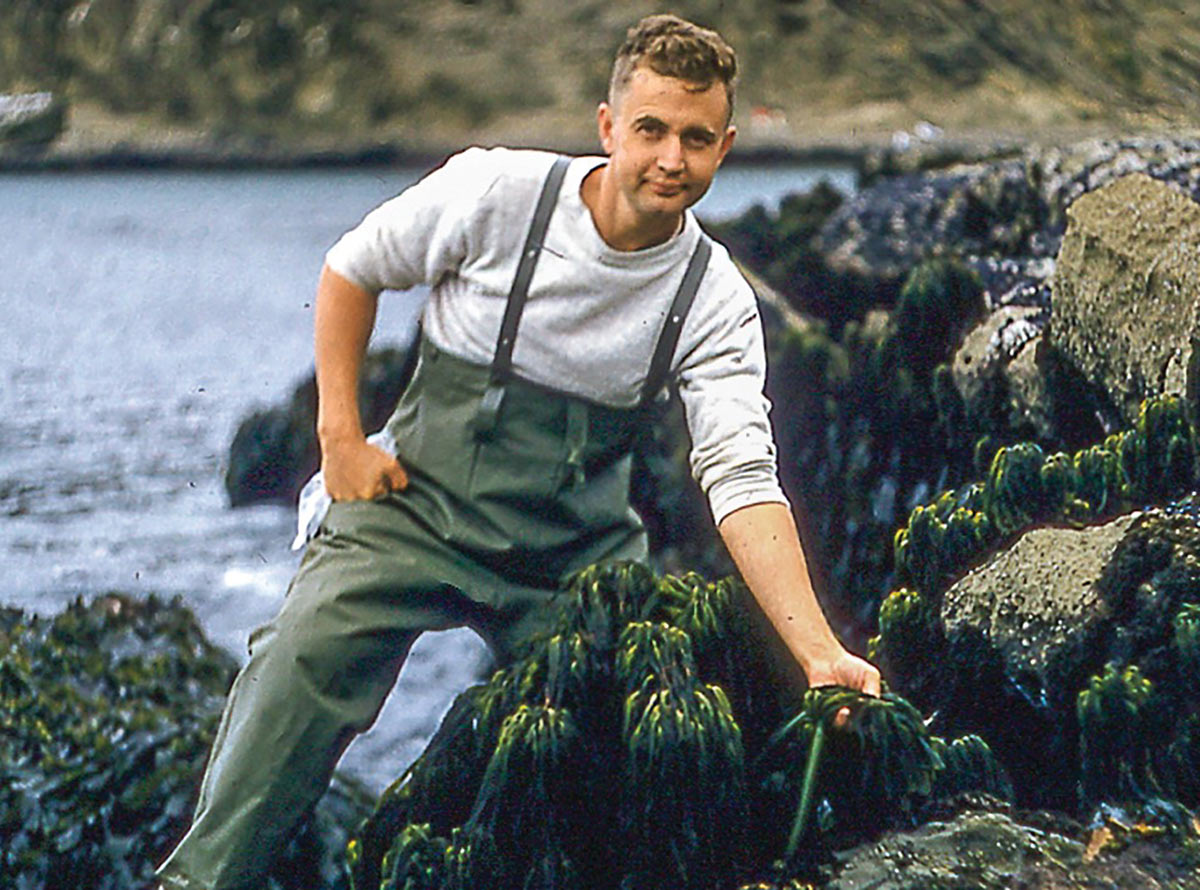Bright Shall Thy Mem’ry Be: In Memoriam

John ‘Jack’ Kingsbury
Kingsbury’s vision for Appledore Island, part of the Isles of Shoals chain of rough, rocky islands off the coasts of New Hampshire and Maine, allowed undergraduate students studying marine science to become hands-on researchers at the Shoals Marine Laboratory — a seasonal field-station collaboration between Cornell and the University
of New Hampshire.
Fifty years after its founding, students still spend their summers at Shoals Marine Laboratory, and alumni still participate in learning vacations, conducting studies on the island and on the lab’s research vessel, the John M. Kingsbury — his namesake.
Kingsbury, professor emeritus of botany at Cornell, who built that small island in the Gulf of Maine into an immersive, summerlong living classroom for students eager to learn about the land and the sea, died May 27, 2023, in Norwich, Vermont. He was 94.
Kingsbury is survived by his wife, Louise; his daughter, Joanna Merriam Kingsbury Smith, and her husband, granddaughters Celia Smith Luterbacher and her husband and Molly Smith Dunn and her husband and great-grandson Ezra Luterbacher.
At Cornell, Kingsbury taught courses on algae in the College of Agriculture and Life Sciences, and wrote the textbook “Poisonous Plants of the United States and Canada,” specifically to train doctors and veterinarians. He spent eight years gathering material for it, crossing North America twice.
Kingsbury’s book “Deadly Harvest,” completed in 1965 and illustrated by noted artist/illustrator Elfriede Abbe, with drawings by his wife, Louise Kingsbury, discusses the history of plant poisoning in humans and animals. It is replete with factual data, as well as stories of medieval methods of deliberate poisoning and accidents.
Kingsbury’s other books include “Seaweeds of Cape Cod and the Islands,” “200 Conspicuous, Unusual, or Economically Important Tropical Plants of the Caribbean” and “The Rocky Shore,” an illustrated account of the rock-strewn coast of New England.
He was a U.S. Fulbright Senior Scholar in Australia, a National Science Foundation faculty fellow and a fellow at the American Academy of Veterinary and Comparative Toxicology.
Kingsbury was born on July 4, 1928, in Boston. He earned his bachelor’s degree in 1950 from the University of Massachusetts and his master’s (1952) and doctorate (1954) from Harvard University.
He served as an instructor at Brandeis University from 1953-54, then joined the Cornell faculty in 1954 as an assistant professor.
He conceived of a living laboratory on Appledore Island in the 1960s, navigating fundraising, a gauntlet of approvals at Cornell and the local building laws. The trustees approved the project in July 1968.
The isle facility formally opened in 1973 and was dedicated in 1975.
The summer program was originally designed to acquaint students with marine sciences ranging from invertebrate zoology to the economics of coastal zone management. The program accentuated fieldwork, natural habitats and ecological interconnections.
It also served good food. Kingsbury brought along a chef — whom he’d hired from the Ithaca Yacht Club — to feed the hard-working undergraduates. Their menu included fresh mussels and chanterelle mushrooms gratineed with cream, lobster with juniper berries and chocolate mousse baked Alaska.
As he said in a Cornell press release touting news about the lab: “Students will put up with ants in their beds, plaster in their faces, dirty clothes, wet sneakers, one shower a week and fussy safety regulations if they are happy in the dining room.”
The young laboratory faced a crisis in autumn 1973, when shipping magnate Aristotle Onassis and his Olympic Refineries sought to build an oil refinery in Durham with a pipeline extending to a supertanker terminal adjacent to Appledore Island.
A strong team of local Seacoast residents in opposition — along with Kingsbury —banded together to thwart the proposed refinery. Worried that it would ruin the pristine natural area, the professor told the New York Times in 1974 that an oil dock “will, quite simply, put us out of business.”
Later that spring, the Durham town board handily voted down the proposal.
Kingsbury also reconstructed the 19th century poet Celia Thaxter’s serene garden on Appledore Island. To this day, the Shoals Marine Laboratory allows island visitors to take a day trip to tour it.